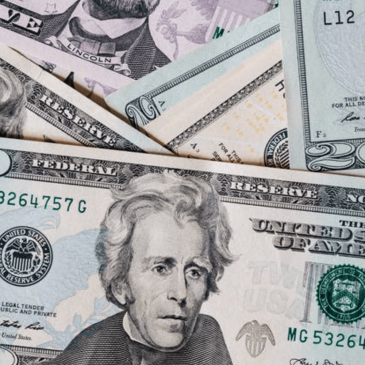Make the Most of Your Cash-Out Mortgage Refinance
Now that mortgage interest rates are on the rise after years of being at record low levels, homeowners across the nation are choosing to look into cash-out refinances to secure new rates while they’re still low and gain access to money that can help them deal with a variety of different expenses.
But as attractive as a cash-out refinance might be, not every homeowner is in an ideal position to benefit from one. You want to make the best financial decision for your unique situation, and part of that is understanding what you can realistically do with a cash-out refinance of your mortgage.
Cash-Out Refinance Dos and Don’ts
If you have built up a lot of equity in your home, then you can use that equity to help pay for certain high-cost items or projects by taking out a cash-out refinance on your mortgage. Some of the most common reasons homeowners might choose this product is to get the funds they need to pay for things like home improvements, outstanding medical bills, credit card debt, college tuition, weddings, or large purchases.
These types of expenses are usually the most ideal uses for funds gained from a cash-out refinance for a few key reasons.
- Home improvements – Using equity to pay for home improvements is one of the most popular reasons for homeowners to choose this type of mortgage product because the increase in market value that home improvements and renovations provide can often be high enough to warrant the refinance.
- Pay medical bills – Life is unpredictable and when medical situations arise unexpectedly, the costs can be astronomical even with health insurance. And to make matters worse, outstanding medical bills can show up on your credit report. As a result, many families tap into their home equity to cover the high costs of surgeries, prescription drugs, and other treatments.
- Pay college tuition – When a child gets accepted into college, parents often must find creative ways to pay for their child’s tuition. Taking a cash-out refinance is often the only opportunity for some families to find the funds they need to help their children get their higher education.
- Pay for a wedding or make a large purchase – A lot of couples max out their credit cards to pay for their dream weddings, but this isn’t recommended because a couple’s marriage starts out with them being in severe credit card debt with high interest rates. In most cases, a cash-out refinance can provide a couple with the funds they need to finance their wedding but at a considerably lower interest rate. The same thing applies to making any type of major purchase using a credit card.
As for what you can’t use a cash-out refinance for, there really are no restrictions. Once you get the funds from your refinance, the money is yours to use as you wish. That said, the above reasons are the best uses for the funds and the reasons most appealing to mortgage loan officers. In fact, if you have any other reason for applying for a cash-out refinance than those listed above, you may find your loan officer to be more hesitant in approving your application.
How to Qualify for a Cash-Out Refinance
When applying for a cash-out refinance, it is important to remember that your new loan will include many of the same requirements as a conventional mortgage or traditional refinance. Here are some of the things you will want to keep in mind:
Your Credit Score Matters
Just like when you applied for your original mortgage, you need to have good credit if you want to be approved for a cash-out refinance. Having lived in your home for decades is appealing to a lender, but it’s not a factor in their decision. Every lender will want to see that you have a healthy credit score, so make sure you check your credit report for any issues that may cause concerns.
Low Debt-to-Income Ratio (DTI)
Likewise, the lender will want your debt-to-income ratio (DTI) to be around 40% or lower. Your DTI is what lenders use to determine whether you can reasonably take on additional debt. Remember, by taking cash out of your refinance, you are applying for a loan that is larger than what you currently owe on your mortgage, so the lender is taking a higher risk.
Loan-to-Value Ratio
Because your new loan will be larger than what you owe on your home, your loan-to-value ratio (LTV) will be used by lenders to evaluate your eligibility for a cash-out refinance. It is not uncommon for some lenders refuse homeowners with LTVs higher than an 80% their cash-out refinance.
Minimum Home Equity Requirements
You can’t secure a cash-out refinance if you don’t have enough equity in your home. Equity is the difference between your home’s appraised value and how much money is still owed on your current mortgage. Most lenders require a minimum of 20% equity, in which only 80% of the value of the home can then be refinanced. There are only two ways to increase your home equity:
- Pay extra toward the principal on your mortgage
- Wait for the value of your home to increase
VA loans are the only exception to the minimum equity requirements rule. The Veterans Administration allows eligible veterans to refinance up to 100% of the value of their homes.



